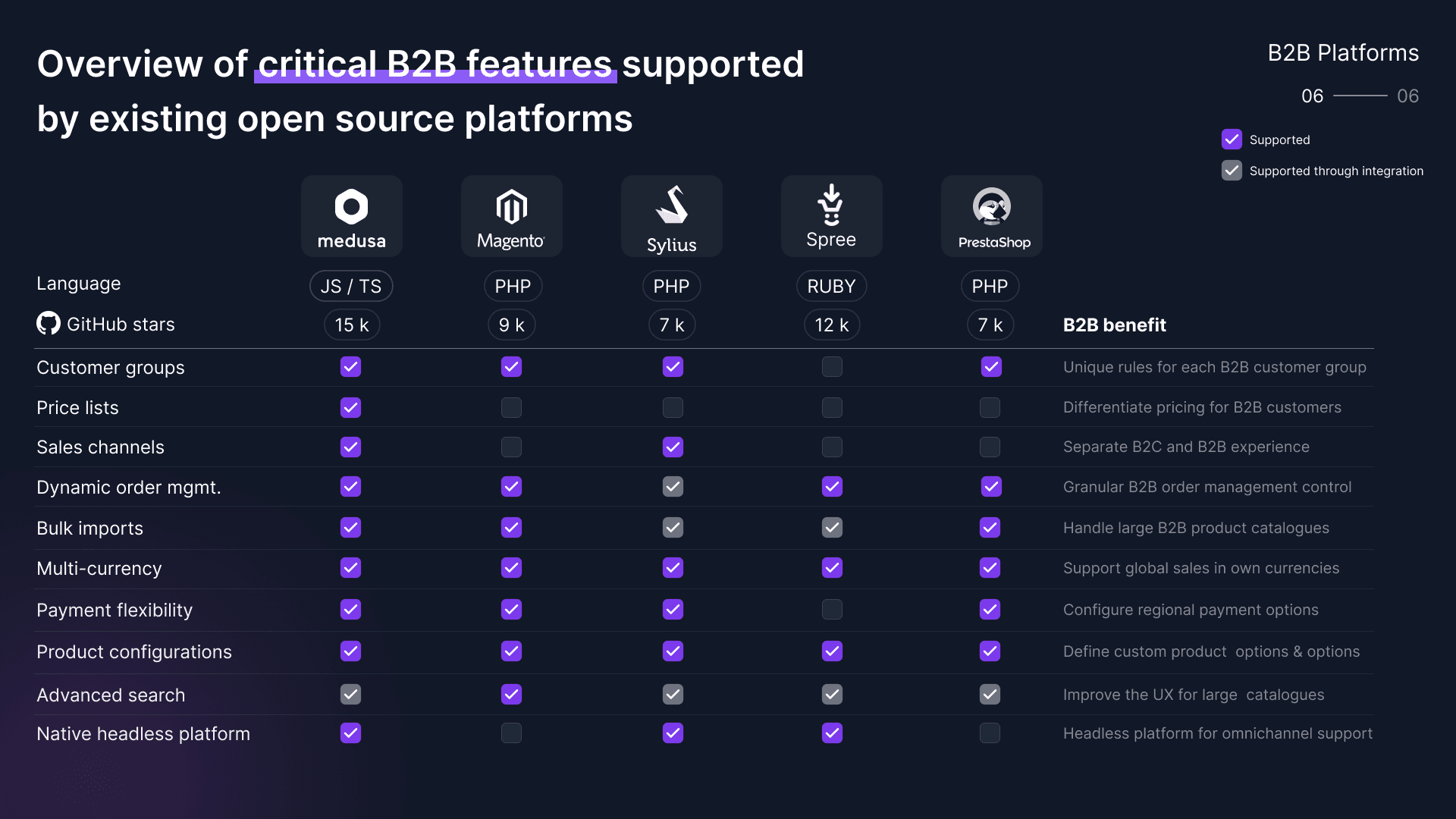Best 5 Open Source Ecommerce Platforms for B2B
Get an overview of the available B2B features in the top 5 open source ecommerce platforms.

B2B ecommerce can be a complicated matter and imposes new requirements for an ecommerce platform compared to what is required to handle regular B2C commerce.
Getting an overview of the B2B features that are supported out-of-the-box in the different open source solutions available in the market can likewise be challenging. Therefore, I spent some time together with Carlos Padilla researching:
- What are the 10 most critical features to support a scaleable B2B ecommerce setup?
- How well do the 5 most popular open source platforms compare across these features?
Below is a summary of the findings.

Why use open source for B2B commerce
What is an open source commerce platform
Before jumping into it, let's get the definitions right. Open source refers to the source code of the platform being fully publicly available for anyone to view, modify, and distribute freely.
B2B ecommerce refers to the direct sale of products or services between two businesses through an online sales portal. For instance, between a manufacturer and a wholesaler.
The benefits of open source commerce platforms
Businesses and their development teams often benefit from open source commerce platforms as they can take full control of the code base. This gives them the flexibility to build bespoke commerce setups.
Newer open source commerce platforms have especially focused on the composability of the platform. This makes it possible for merchants to set up a tech stack of their preference while giving their development teams the possibility of mingling directly with the core to customize it to their preference. This is not possible with proprietary platforms.
This flexibility is the reason why the majority of the world's top 250k ecommerce sites today use either open source or custom-built platforms to power their ecommerce setups. You can read more about this in our recent Open Source B2B Ecommerce Perspective.
Why does flexibility matter for B2B businesses
The benefits of platform flexibility are only amplified in the world of B2B-oriented businesses. B2B is a complex area in commerce as you need to handle a lot of aspects that not considered in B2C. This includes customer groups, customer-differentiated pricing & discounts, separate B2B product catalogs, and more.
In addition, the integration landscape becomes more complex due to the need for integrations with ERP systems, more advanced fulfillment systems, new omnichannel experiences on the frontend, etc... This requires flexible systems that are geared toward handling more bespoke cases. That is the reason why most B2B businesses end up building completely from scratch or hacking their setup together using a proprietary platform.